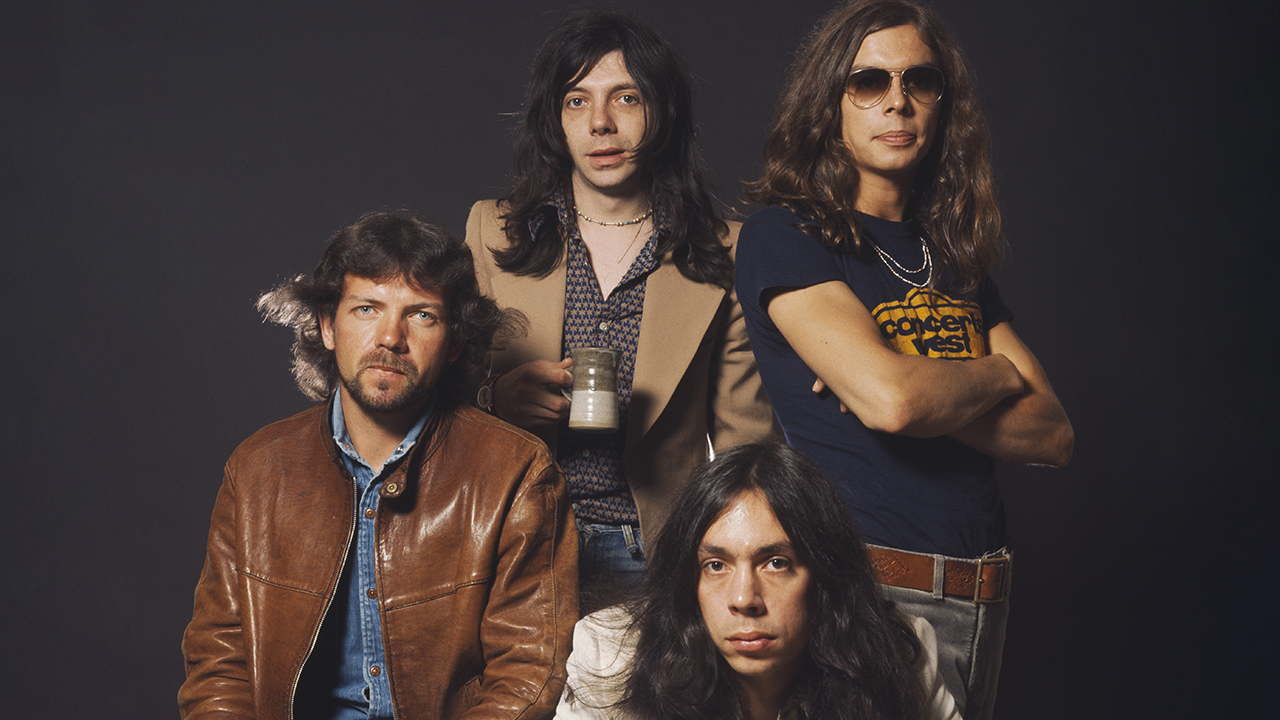Warren Haynes: Government Man
Ahead of the release of his new solo album, Gov’t Mule mainman Warren Haynes talks about the Allman Brothers, difficult choices, mentally unstable fans and adventures in reggae.
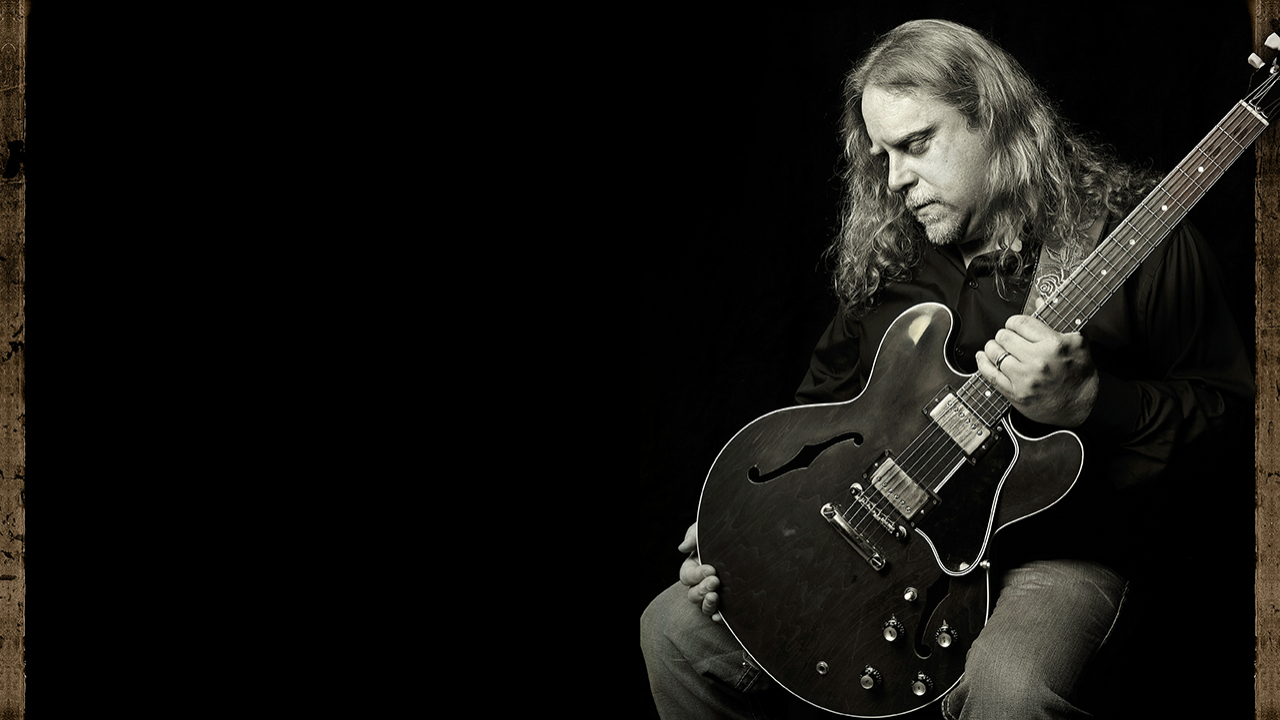
In 1997, Warren Haynes and Allen Woody were forced to wrestle with a conundrum. For the previous three years the guitarist/singer and bass player had been moonlighting from the Allman Brothers Band with their own group, Gov’t Mule. Now it was time to choose.
For Haynes especially, the opportunity of being a Brother in a band he’d idolised in his youth was heaven-sent. But on the flip side, the Mule represented a gleaming blank canvas, and when their self-titled debut record had been released two years earlier it garnered immediate cult success, allowing the band (completed by drummer Matt Abts) a platform for their Cream, Jimi Hendrix Experience, Mountain and James Gang power-trio-inspired fantasies. With heavy hearts the pair eventually turned their backs on fanboy loyalty and what had appeared to be a comfortable long-term gig to take the proverbial leap of faith.
“It took us around eighteen months to reach a decision. There was a lot of turmoil within the Allmans back then, especially between the original members,” Haynes explains, referring to Gregg Allman, Dickey Betts, ‘Jaimoe’ Johanson and Butch Trucks. “Communication was lacking and rehearsals had dried up, just like the writing or recording of new material, whereas in the world of Gov’t Mule all of those things were going on.”
Today, 21 years, 19 albums and a Grammy nomination later, that choice now seems like a complete no-brainer. Fêted by fellow musicians and fans alike, Gov’t Mule are among rock music’s hardest-touring acts, rolling out sets of more than three hours’ duration night after night, each one different. The band are proud that, drawing on the 300-plus songs in their repertoire and often featuring special guests, no two shows are alike.
Collaborations with a Who’s Who of the rock world, from Jack Bruce and John Entwistle to Slash, Chris Squire, Billy Gibbons, Flea, Roger Glover, Robby Krieger, Steve Winwood, Tony Levin, Jerry Cantrell and Bootsy Collins, reflect Haynes’s status.
The support he received when Allen Woody passed away in the summer of 2000 played its part in the band’s decision to continue.
“I got cards and emails from Leslie West [of Mountain, whose bassist Felix Pappalardi was shot dead] and a beautiful message about losing Cliff Burton from James Hetfield [Metallica],” Haynes reveals. “Dave Grohl also contacted me to talk about how he had felt when Kurt Cobain died.”
Sign up below to get the latest from Classic Rock, plus exclusive special offers, direct to your inbox!
From the ZZ Top-esque Bad Little Doggie to the rhythmic Thorazine Shuffle and Soulshine’s heart-melting psychedelia, Gov’t Mule’s often southern-tinged rock can be radio-friendly as well as muso-intensive.
Each year the band – completed by bassist Jorgen Carlsson and keysman Danny Louis – grows a little bigger, although without really showing up on the radar of the casual fan. This is because they come from the ‘more is more’ mind-set: more notes, longer sets, extended jamming and an overwhelming choice of product. Haynes knows his band won’t be for everybody. But, following the apparent retirement of the Allmans – who he rejoined for a second, 14-year spell at the millennium’s turn – in many ways what they do is now unique.
We’re much more of a rock band than most of the jam-bands out there,” he says. “And I would imagine that post-Allman Brothers we’ll probably end up inheriting some of those songs because they need to stay alive.
“My favourite thing about Gov’t Mule is that it’s a laboratory for us to experiment in just about any way we choose. Our audience travels with us each time we go out on a limb, releasing a reggae album or paying homage to our heroes. That’s not necessarily true of too many other bands.”
Haynes is referring to Dub Side Of The Mule, a triple-disc set which pulls together three hours of Mule originals and reggae covers, some of which were performed with Toots & The Maytals leader Toots Hibbert, and Dark Side Of The Mule and Stoned Side Of The Mule, their in-concert re-recordings of songs by Pink Floyd and the Rolling Stones.
“Our audiences really show their loyalty through our live performances. Playing for three hours each night, we tend to get away with murder,” Haynes says, “but the fans love us for it. Whether it’s your first Gov’t Mule show or your hundred-and-thirtieth, with an all-new set-list you won’t have seen it before.”
The Mule are tolerant of concert recorders, despite the existence of Mule Tracks, a self‑run website that enables fans to purchase live album-quality downloads of their concerts. Haynes admits that Mule Tracks provides an important additional revenue stream that goes towards helping them retain their independence.
People can bring their microphones and record us – we even set up a taper section if the venue allows it. As long as no money changes hands, we’re cool with that,” he explains. “But Mule Tracks has been very successful for us, compensating for the fact that just about every band’s album sales are shrinking. We’re not driven by record sales or media interest, but those changes do affect us. Bands in general are struggling to reinvent themselves, figuring out how to survive.”
Just like the bands that pioneered rock music, Gov’t Mule eschew pizzazz of any sort. On the day we meet, in a Central London hotel, Haynes, wearing a smart dark shirt, could be mistaken for a middle-aged Silicon Valley exec about to chair a business meeting, but on stage he dresses down. If someone said he looked like a roadie, would he be offended?
“No. It’s something I’ve dealt with my entire life. And there have been very few times in my career when I’ve felt the need for sartorial elegance.”
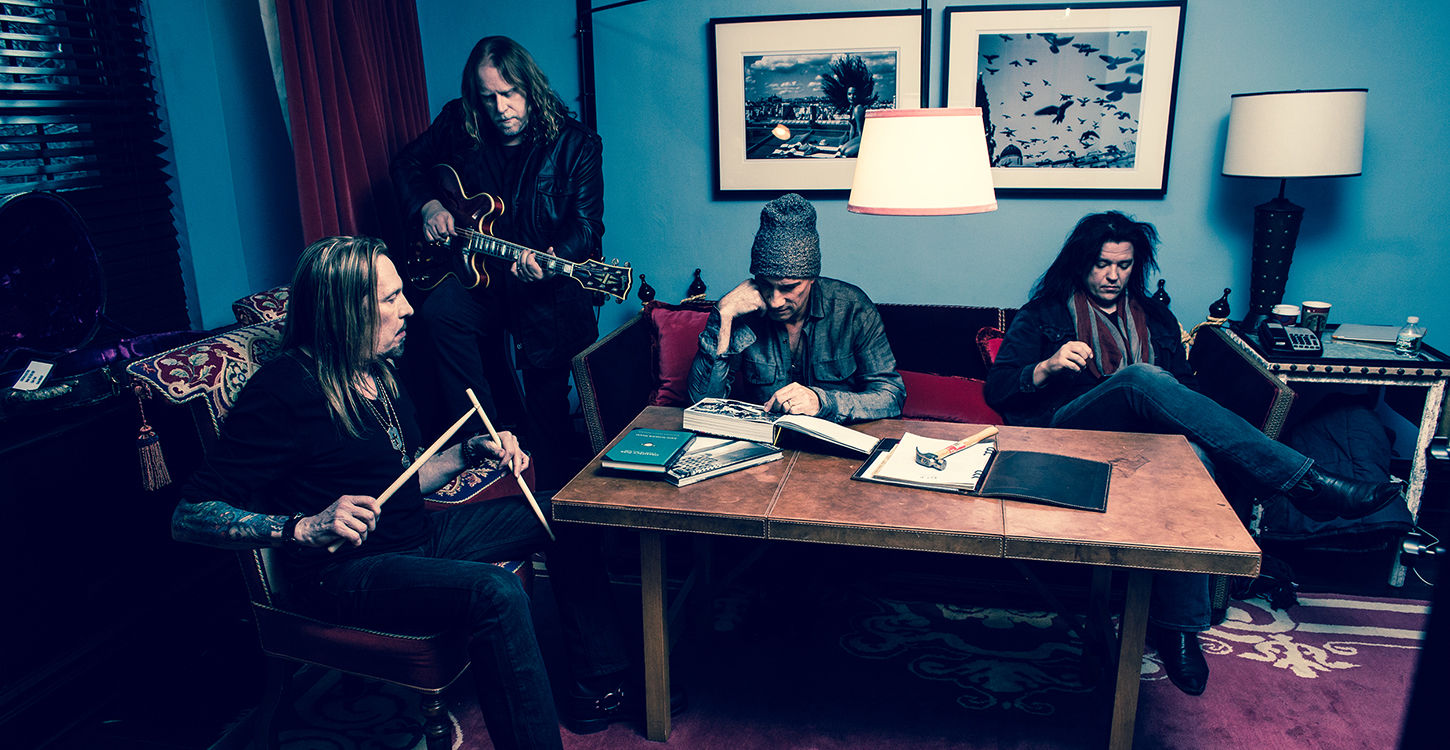
It would be difficult to imagine him in a silver suit.
As you might expect of a band named after a term from the Deep South that describes a woman with a large posterior, Gov’t Mule’s live show is equally gimmick-free – there’s no backdrop or intro music, for example.
“That’s something we inherited from the Allman Brothers. Also from the Grateful Dead to a certain extent, this whole unpretentious way of playing music. Bands weren’t expected to jump around or be ‘entertainers’. We’re musicians, and we’re more humble about our appearance on stage than a lot of other types of band. And people kinda like that. No one would want to see us dancing, I can assure you.”
Although he admits “we’re comparing the greatest music you’ve ever heard to new music, so you must lower the bar a little or be a snob”, there is at least some hope. He cites two New-York-based groups – The London Souls (who, coincidentally, are featured on p23 of this issue) and Earl Greyhound – as names to check out, and also offers praise for a 17-year-old blues guitarist called Marcus King who, he says, “plays great, sings his ass off and writes really good songs. He’s opened for us. And in the same way as Derek Trucks [of the Allmans and Tedeschi Trucks Band] was really good at a very young age, so is Marcus.”
With Gov’t Mule the music is everything. Haynes appreciates that expecting audiences to listen for three hour asks an awful lot, unless you’re a particular kind of fan. “It’s demanding of their attention spans but it’s what the fans want. And in some ways we have painted ourselves into a corner,” he admits. “A few nights ago in Rome there were complaints when we played for just two hours and thirty-five minutes. But that was due to the curfew – it had nothing to do with us being ‘tired’. It’s why we didn’t take a break between sets that night.”
Haynes believes strongly that his band are a part of what Skynyrd recently called ‘the last of a dying breed’. “A whole generation of bands are standing on the brink of extinction. And although I’m younger than a lot of the names that we’re starting to lose, it includes Gov’t Mule,” he acknowledges. “Let’s start with the blues. Now that BB King is gone, Buddy Guy is the last surviving truly iconic guy that from genre. And just think about the names we’ve lost from the world of classic rock. Look around and see how many have gone. It’s quite an awakening.”
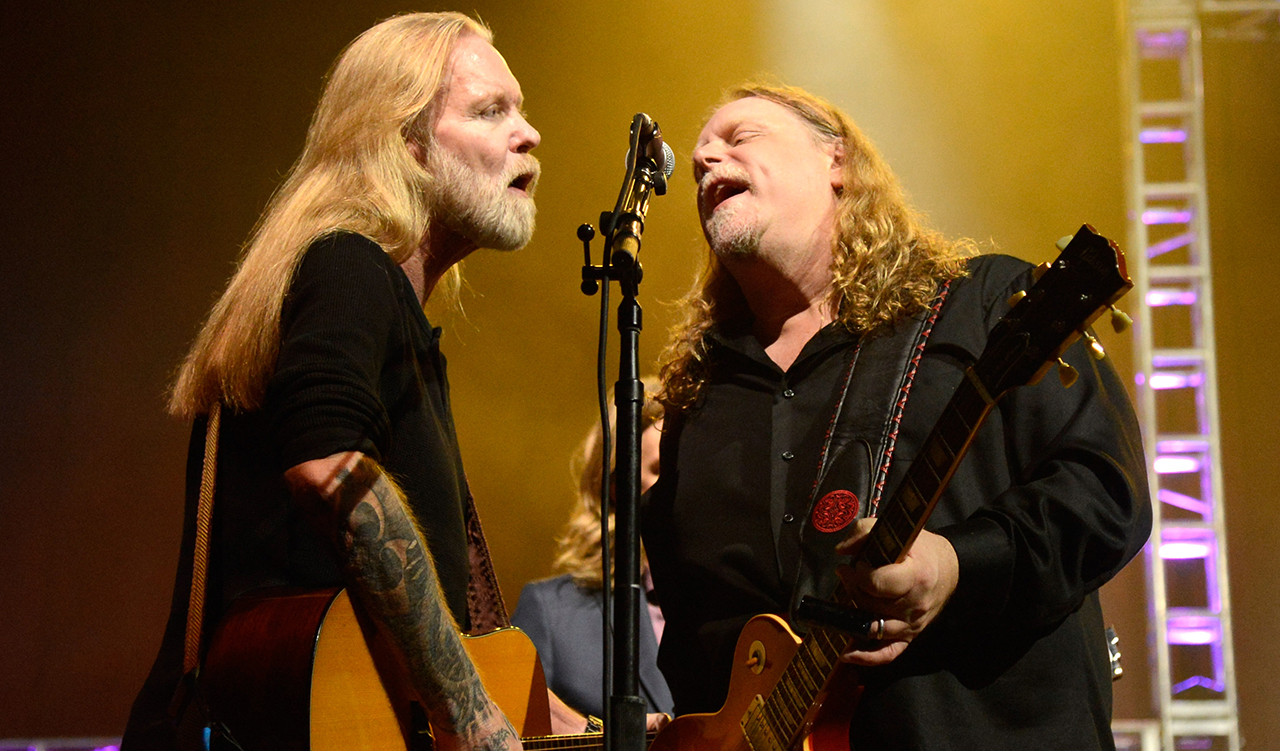
The root of the problem has been discussed many times before – TV talent shows, lack of industry support, and external distractions such as computer games and the internet. Haynes rues the fact that so many of today’s aspiring musos seek a short fix.
“It reminds me of the days pre-Sgt Pepper, when artists were disposable,” he sighs. “Back then nobody expected careers to last anything more than two or three years. And that’s the way we’re going again now. There should be some room for artistic development. Labels like A&M and Asylum would allow that – so long as you made good music and grew artistically, you were given time. Not any more.”
And Haynes himself won’t commit to the quickest fix of all. “I’m not going on to social media,” he thunders. “What’s the point of making every facet of my life available for the public?”
One artist who has succeeded in providing a rare chink of daylight is Joe Bonamassa. He’s younger and better presented than Haynes, and his growing profile suggests that the blues can be popular again if done thoughtfully and well.
“Joe is proving that you don’t have to follow the traditional model or what everyone else expects of you,” Haynes offers. “Talent can pay off. He is an important artist. I’ve known him since he was sixteen and he played great even back then. In the States it had looked as though it wasn’t going to happen, but he persevered and now he’s taken off.”
Business-wise, Bonamassa and his manager Roy Weisman certainly have their heads screwed on, with each touring campaign planned down to the minutest of details. However, some say that both Bonamassa and the Mule release way too much product. Over the course of 18 months we’ve been handed Dark-, Stoned- and Dub Side Of The Mule and an album with John Scofield (Sco‑Mule), now followed by Haynes’s new solo record, Ashes & Dust.
“Those archival releases are linked in with the band’s twentieth anniversary,” he explains. “When the next important anniversary comes along, that’s something that maybe we won’t do again. The sense of overload is multiplied by each product containing a lot of music. None of our CDs are thirty or forty minutes long. We don’t set out to fill every last second of a CD with music, but somehow we always end up doing that.”
Such forms of excess inspire some phenomenal acts of devotion. Haynes knows of fans who have attended more than 200 of his band’s shows.
“I appreciate that, though I admit I don’t really understand it,” he remarks with a chuckle. “I guess the only reason could be that the shows are always different. And that the people concerned are mentally unstable – in a nice way.”
Haynes is ambivalent when Gov’t Mule are lumped in with the so-called jam-band scene.
“What annoys me is the inference that we’re just a bunch of hippies noodling around, in the same way that the Allman Brothers resented being called [just] a southern rock band – especially if your image of a southern rock band is whiskey, rednecks and racism.”
Until the Allmans signed off with what has been termed their ‘final’ gig, at the Beacon Theatre, New York on October 28, 2014, Haynes had served double duty with the Brothers and the Mule, also taking on the Jerry Garcia role in the post-Grateful Dead spin-off group The Dead. He derives a special sense of fulfilment from the total of around 25 years spent with the Allmans.
“That’s maybe because the last versions of that band [before I joined them] really weren’t the greatest in their history,” he points out. Addressing the subject of their ‘retirement’, Haynes chooses his words carefully, mindful of several facts. Firstly, a lack of categorical clarity regarding the band’s state of existence. Secondly, that their most recent studio record, Hittin’ The Note, was recorded as long ago as 2003. And finally their stubborn refusal to tour Europe for the first time since 1991.
“Yeah, there was dignity, but I’m not happy with the way it ended publicly,” he says. “Was it the final tour, or not? Nobody stood up and said: this is what’s happening, this is why we’re doing it. Somebody would say something in the press, and another would contradict it.
“The last shows that we did were very good, and the final one was amazing. But I do regret that we didn’t get to make a final studio album. And I really felt that the band should have tapped into its potential outside of America. It took way too long for some of the guys to understand that it was important in the long run. With the Allman Brothers, communication was always the biggest obstacle – especially the original members – and that kept the band from doing things that it could have and should have done. It’s very unfortunate.”
So is it really over?
“I think so, though it’s not really my place to say. If they want to keep it going, that’s their prerogative, and I would never rule out a reunion. But at the moment that doesn’t seem likely to happen.”
Neither will Haynes be present for Fare Thee Well, the 50th-anniversary shows with four original members of the Grateful Dead – Mickey Hart, Bill Kreutzmann, Phil Lesh and Bob Weir – teaming up with pianist Bruce Hornsby, keyboard player Jeff Chimenti and Phish guitarist Trey Anastasio.
“I’d been doing a separate thing from them, and my schedule’s pretty crazy. I couldn’t have done it had they asked me,” he explains. “Fare Thee Well came about via the merging of a lot of different camps. I’m not a part of it but I’m very happy that they’re doing something to celebrate such an important milestone.”
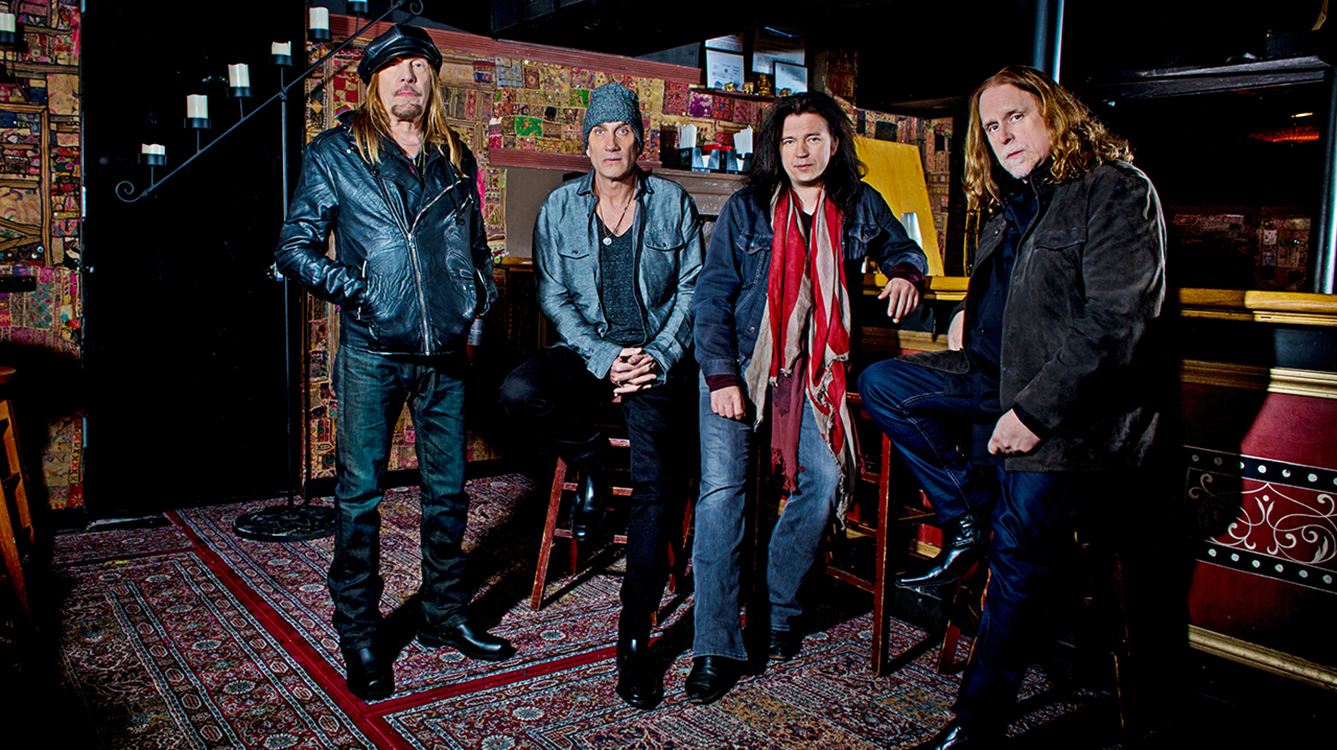
Meanwhile, the Mule trundle on, although Haynes admits that fresh guest contributors are on the wane. In 2010 the band played the Who’s Next album in its entirety, so presumably Pete Townshend must feature on Haynes’s hit-list?
“Oh yeah, and BB King was on there too,” he says sadly. “I’ve never even met Pete, but I would be honoured to do something with him should the opportunity arise. I’ve never played with Jimmy Page or Mark Knopfler, though I recently played with Jeff Beck, which was a very big deal. I’ve played with Peter Green too. But, Peter being Peter, he played harmonica [not guitar]. It was a beautiful experience.”
Haynes admits to often wondering how much bigger a band like Gov’t Mule could become, drawing hope from the smattering of “younger people” beginning to attend their shows, alongside musicians, hippies, jam-band loonies and concert recorders.
“Perhaps we represent something their generation has been robbed of,” he offers. “They’re discovering our style of rock music for the first time. I firmly believe that someone who’s passionate about music who wanders into a Gov’t Mule show is going to leave a fan.”
DOWN TO EARTH Warren Haynes on his Americana-flavoured new direction.
Warren Haynes recorded his newly released third solo album, Ashes & Dust, with the New Jersey-based Americana outfit Railroad Earth. Its shorter, song-based pieces venture into folkier, more blues-based areas than ever before.
Haynes met Railroad Earth a few years ago via several on-stage jam sessions. With guests spots from Grace Potter of jam band The Nocturnals, singer-songwriter Shawn Colvin, noted harmonica player Mickey Raphael and Allmans bassist Oteil Burbridge, some selections date back to a record he’d planned to make with Leon Russell and Levon Helm, vocalist and drummer of The Band, before the latter’s death in 2012.
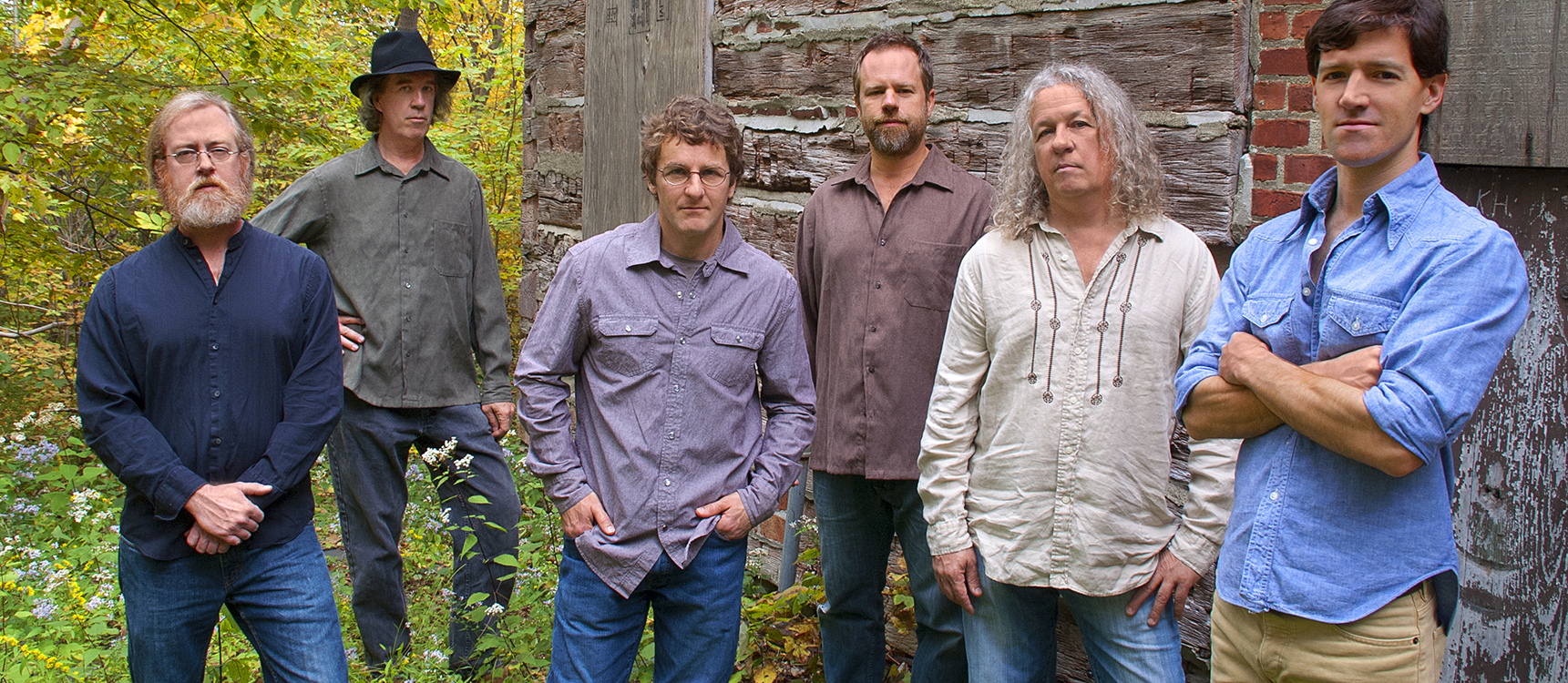
In 2011, Haynes was acknowledged by Rolling Stone magazine as the 23rd greatest guitarist of all time. The accolade overshadows his prowess as a vocalist, as shown in his honeyed delivery of Blue Maiden’s Tale and New Year’s Eve.
“There’s a lot of guitar playing, but the focus is on the songs,” he says in agreement. “I’ve wanted to make a record like this for a long time and hopefully it’s the first of one or two more.”
With US solo dates featuring Railroad Earth already booked, Haynes says he is “trying to figure out a way to come to Europe”, although schedule congestion could result in him working with a different backing group if and when he does.

Dave Ling was a co-founder of Classic Rock magazine. His words have appeared in a variety of music publications, including RAW, Kerrang!, Metal Hammer, Prog, Rock Candy, Fireworks and Sounds. Dave’s life was shaped in 1974 through the purchase of a copy of Sweet’s album ‘Sweet Fanny Adams’, along with early gig experiences from Status Quo, Rush, Iron Maiden, AC/DC, Yes and Queen. As a lifelong season ticket holder of Crystal Palace FC, he is completely incapable of uttering the word ‘Br***ton’.
